

Trump’s man who changed the world
ANALYSIS: Mike Pompeo’s memoir gives hope to Republicans.
NBR columnist Nevil Gibson speaks with Calida Stuart-Menteath.


ANALYSIS: Mike Pompeo’s memoir gives hope to Republicans.
NBR columnist Nevil Gibson speaks with Calida Stuart-Menteath.
In my schoolboy rugby-playing days I was often called ‘Tank’, no doubt to reflect my ability to barge through using my physique.
US former president Donald Trump’s Secretary of State, Mike Pompeo, was given a similar sobriquet, “Tank Man”, by Russian President Vladimir Putin and two of his top henchmen.
In his memoir, Never Give an Inch, Pompeo says he was pleased with the moniker, as it not only reflects his time as commander of a US Army M1A1 Abrams tank but his philosophy of “grinding on” until a job is done. It also implies he wasn’t going to be easily rolled by the Russians’ mix of intransigence and deceit in their dealings with Western politicians.
This hardline approach is deeply embedded in Pompeo’s book, with each of its 27 chapters titled by a catchphrase, which he then illustrates with examples from his career: ‘Pivot quickly from failure’, ‘Don’t appease. Go on offense’, and ‘Tell the hard truth’.
Pompeo’s reputation rests on being the only senior appointment to last the full distance in the disparaged Trump administration. As secretary of state, Pompeo was also America’s top diplomat for three years. He makes a few apologies, has no regrets, and only pulls his punches when referring to Trump himself. In turn, Trump called Pompeo “My Mike” as recognition of his loyalty.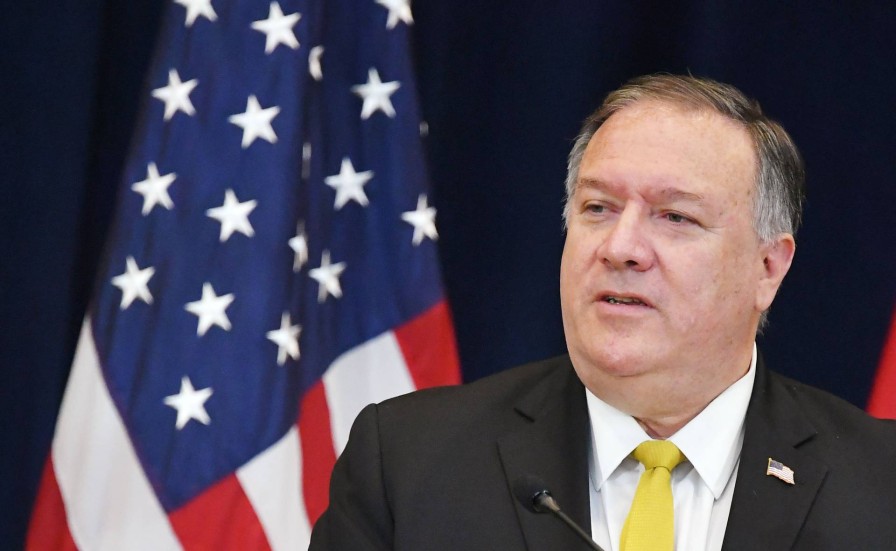
Former US Secretary of State Mike Pompeo.
The memoir is widely touted as the opening shot in a Pompeo campaign for the Republican presidential nomination, something Trump himself is also seeking. On his own account, Pompeo has an unblemished record.
It includes a stint in the military after graduating from West Point, followed by a few years in a law firm with a Harvard degree, and then a successful career in a business startup (Thaley Aerospace). His political career started with three terms in the House of Representatives as a Republican from Kansas. He was re-elected in 2016 but was immediately tapped by the new Trump administration to be director of the CIA.
He immediately set out to reverse the CIA’s “risk averse” policies under President Barack Obama, describing his predecessor, John Brennan, as a “total disaster”. It had been “defanged” by consultants McKinsey, who also worked for the Chinese government and put more priority on fulfilling “progressive values” rather than actual spying.
Pompeo restored the CIA’s ties with Israel’s equivalent, Mossad, and set about making Iran-backed jihadists in Al Qaeda and ISIS the main target of covert activity (‘Pivot quickly from failure’) while renewing efforts to curb Iran’s nuclear weapons programme.
In mid-2017, just as he was getting some runs on the board at the CIA, Pompeo was plucked out to replace Rex Tillerson as Secretary of State. Tillerson, a former Exxon chief executive, had been overheard describing Trump as a “f***ing moron” – a career-ending observation.
Pompeo has reason to be pleased with his record of foreign policy pivots: pushing Nato allies into spending more on defence; breaking the nuclear arms deal with Iran; trying to disarm North Korea as a nuclear power; reviving ties with Israel and Saudi Arabia; pushing back Putin’s Russia; and confronting the trade and diplomatic goals of Communist China.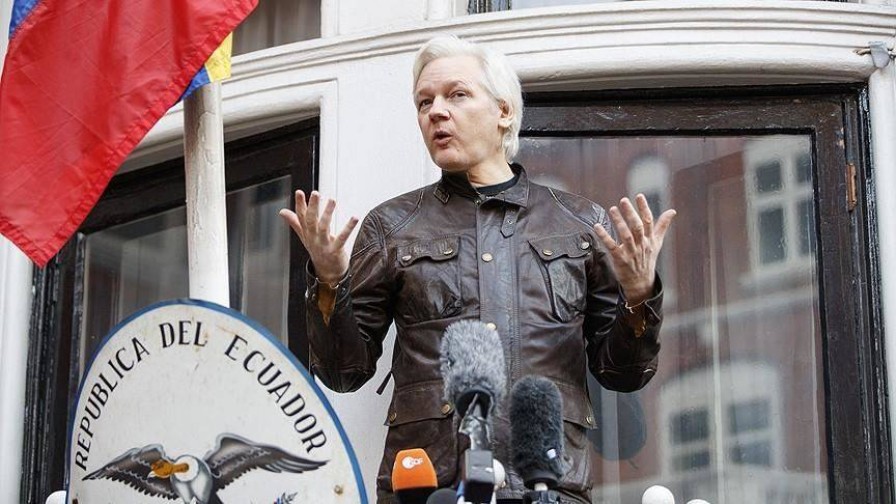
Julian Assange before his ‘expulsion’ from the Ecuadorian Embassy in London.
The memoir has plenty of details on all these issues, making it the most valuable insider’s account of the Trump administration so far. We learn he lobbied the Ecuadorean embassy in London “hard … to kick [Julian] Assange out of his pathetic accommodations inside … and they finally capitulated on April 11th, 2019”, after which the US “piled on 17 more charges”.
That effort has yet to be concluded but, given Pompeo’s views on former Department of State officials, such as Susan Rice and Barbara Leaf who have returned under the Biden administration, he won’t be holding his breath.
Whistle-blower Edward Snowden, who has asylum in Russia, is described as a traitor and “hoodlum” and Pompeo is equally forthright on what he calls the “Russia hoax” – the FBI-led inquiry into Trump’s links with the Kremlin and his controversial phone call with Ukraine President Volodymyr Zelensky.
On just about every foreign policy issue, Pompeo can claim, in hindsight, he was right. Nato was badly prepared for a Russian invasion of Ukraine, which Putin triggered because he believed President Joe Biden would back down as Obama had done in Syria and Crimea. Pompeo asserts Russia had long planned to take control of Ukraine but held off until the Trump administration had gone.
In the Middle East, the Abraham Accords scotched the conventional view that the West’s Arab allies could not reach an accommodation with Israel. Similarly, the assassination of Iran’s top military commander, Qassem Soleimani, proved that use of US military dominance did not bring reprisals. (Iran’s threats of revenge were never carried out, though the Pompeo family and others sanctioned by that regime still have military protection.)
Pompeo faults the Biden administration as “idiotic” for removing conditions from the planned US withdrawal from Afghanistan in 2021, resulting in a debacle that gave the Taliban a free hand to resume their barbarian regime.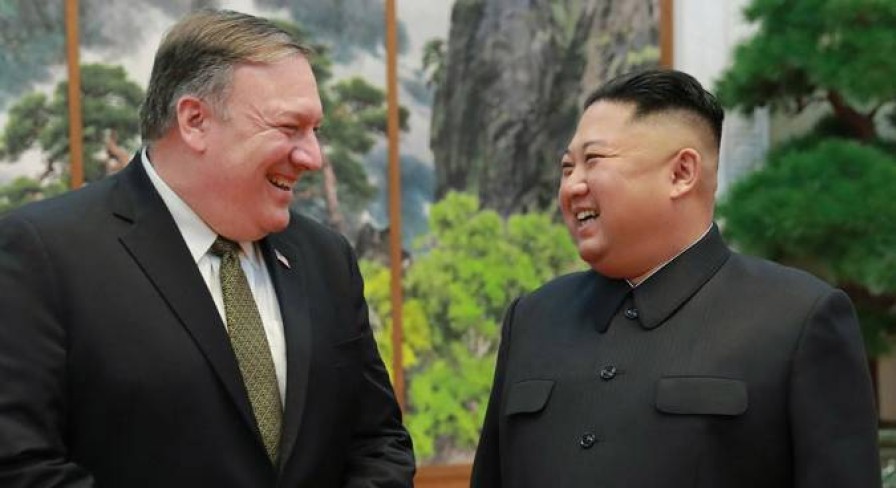
Kim Jong Un and Mike Pompeo swapped joked about the Chinese.
Though the deals on disarming North Korea failed, Pompeo claims Kim Jong Un kept his pledge to refrain from testing nuclear weapons and long-range missiles during the Trump era. Testing resumed only because Kim perceived the same weaknesses in US policy as Putin.
During one of his visits to Pyongyang, Pompeo said Kim spoke candidly on concerns about China. Told that China believed North Korea wanted US forces out of South Korea: “Kim laughed and pounded on the table in sheer joy, exclaiming that the Chinese were liars.”
Kim “said that he needed the Americans in South Korea to protect him from the CCP [Chinese Communist Party], and that the CCP needs the Americans out so they can treat the peninsula like Tibet and Xinjiang”.
China has stepped up its anti-Western campaigns and cemented Xi Jinping’s dictatorship because the US has resiled on Trump’s confrontational policies, Pompeo believes. He says his move to change Hong Kong’s special status in 2020 was strongly resisted by the Department of State and members of the US Foreign Service, organisations he accuses of being highly unionised and following an appeasement agenda at the bureaucratic level.
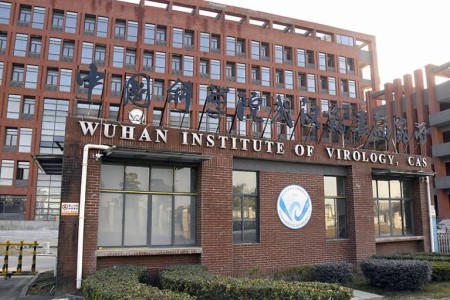
Mike Pompeo supports the ‘lab leak’ theory of Covid-19 virus.
Pompeo is even more outspoken in his criticisms of China’s Covid-19 response and remains convinced the accidental ‘lab leak’ theory is the best explanation of how the ‘Wuhan virus’ spread around the world.
If Pompeo were elected president, the US would give full diplomatic recognition to Taiwan and the HSBC Bank in Hong Kong would no longer be able to act as a “money launderer” for the CCP.
He gives the benefit of doubt to anyone prepared to be America’s friend (‘Choose the right allies’). That applies to Mohammed bin Salman (MBS), the young and effective ruler of Saudi Arabia. Pompeo doesn’t justify the horrific murder in Turkey of Jamal Khashoggi, a critic of the Saudi regime, in 2018. But neither does he blame MBS, whom he describes as an “historic figure” for his reforms in moving Saudi Arabia away from its strict practice of Islam.
Pompeo records how a secret US intervention prevented escalation of the conflict between India and Pakistan. “I do not think the world properly knows just how close the India-Pakistan rivalry came to spilling over into a nuclear conflagration in February 2019,” he writes.
US diplomats convinced India and Pakistan that neither was preparing to go nuclear. “No other nation could have done what we did that night to avoid a horrible outcome,” Pompeo concludes.
One of the chapters is entitled, ‘Know your limits’. This is where Pompeo explains why US foreign policy cannot be “everything everywhere all at once.” Countries on this list include Venezuela, Cuba, and Syria. It may be why New Zealand is not mentioned once.
The genuinely juicy revelations provide colour to a memoir that, at more than 400 pages plus an index, is full of self-justification and often bitterly critical of his colleagues in the Trump administration, not to mention a claque of hostile journalists. A footnote is that Pompeo’s Italian heritage originated in a village called Pacentro, the same as Madonna’s.
The harshest his critics have noted is what he has left out, such as the events of January 6, 2021, and Trump’s desperate attempts to stay in power. This lapse is no doubt deliberate.
Pompeo is a man of principles and strong evangelical Christian beliefs who wants to make the world a safer place. He could be many Americans’ dream of the ideal non-Trump Republican, though his record in public office is blemished by his association with Trump himself.
Pompeo’s campaign for the White House will be watched with interest.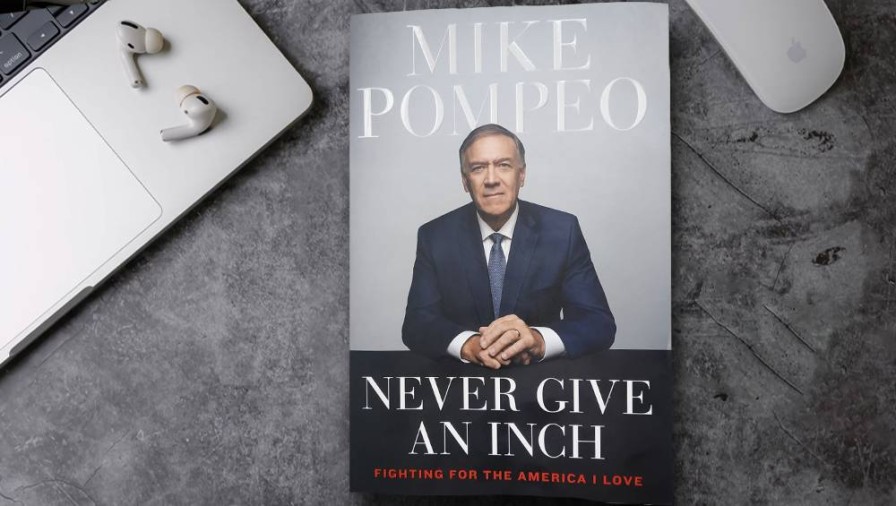
Never Give an Inch, by Mike Pompeo (Broadside Books/HarperCollins)
Nevil Gibson is a former editor at large for NBR. He has contributed film and book reviews to various publications.
This is supplied content and not paid for by NBR.
Sign up to get the latest stories and insights delivered to your inbox – free, every day.